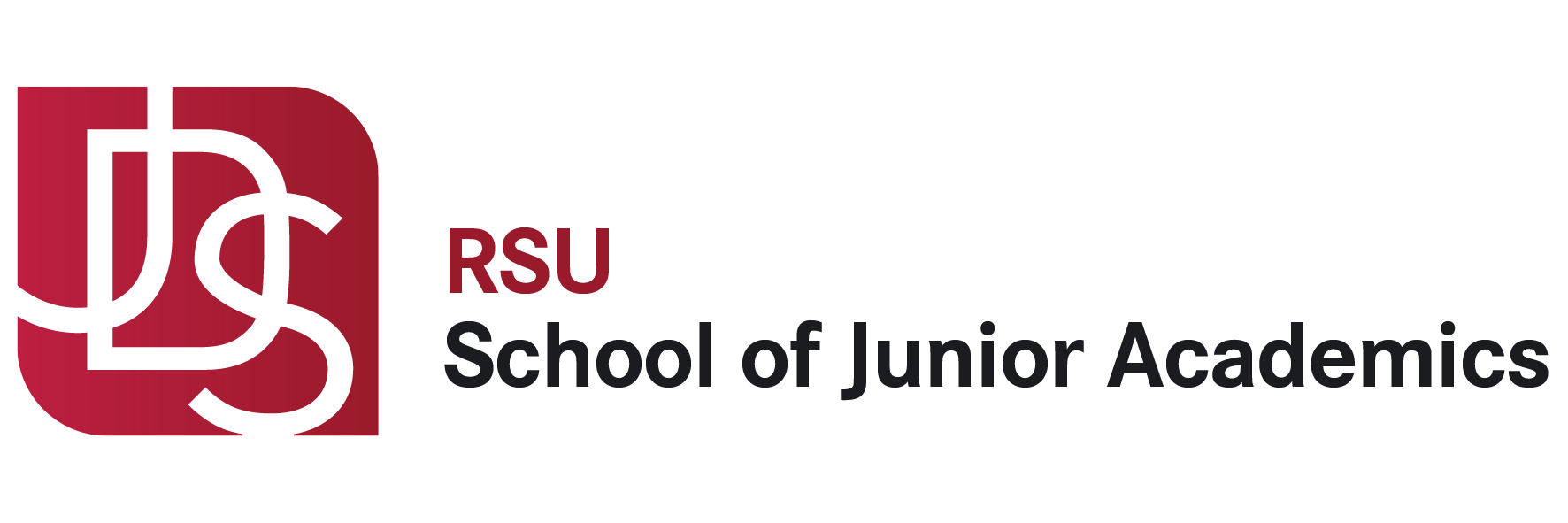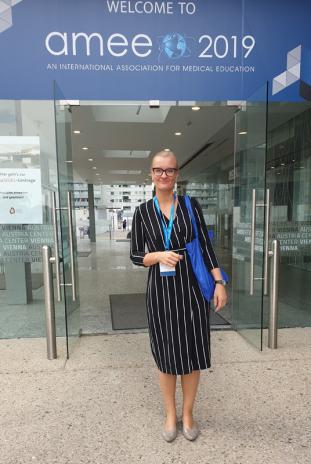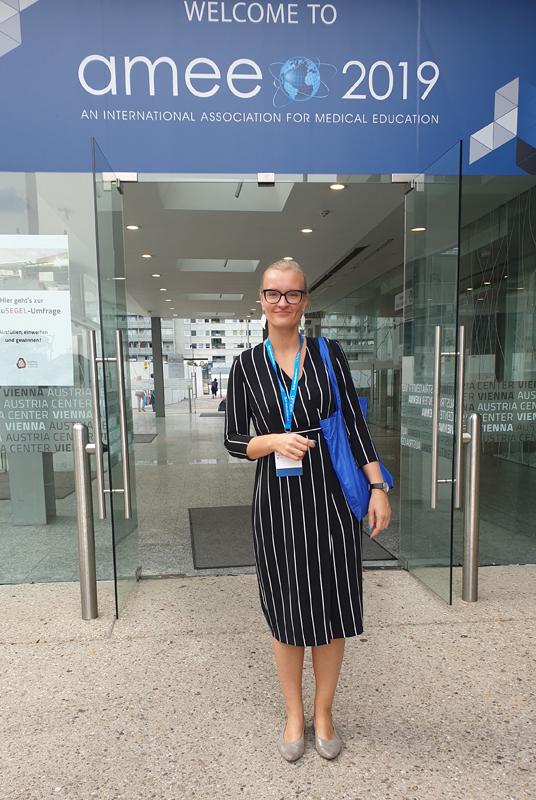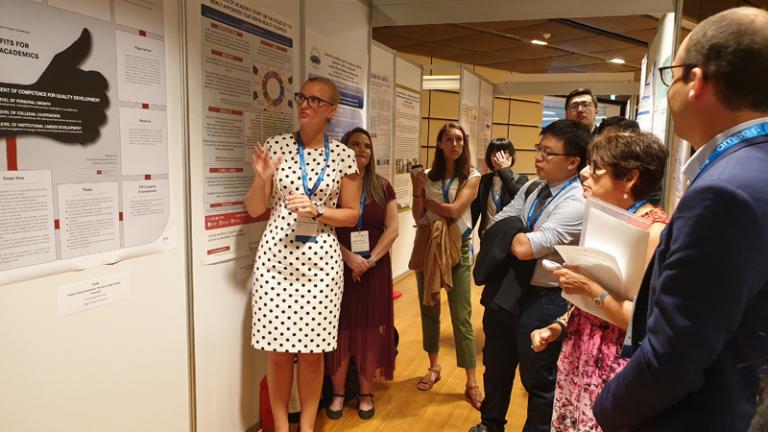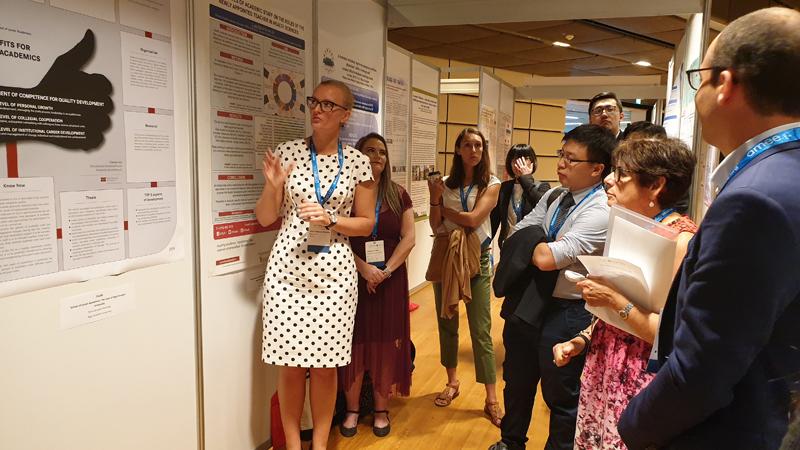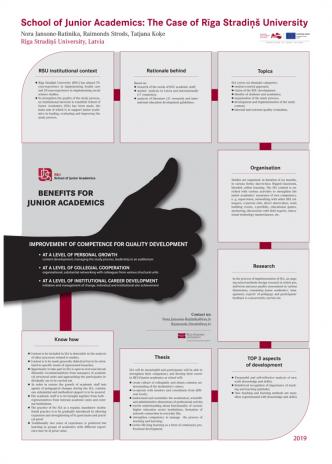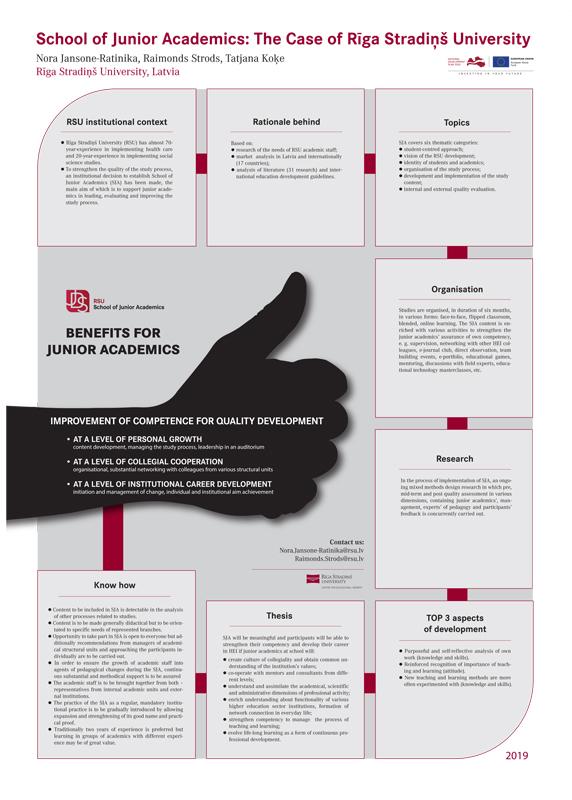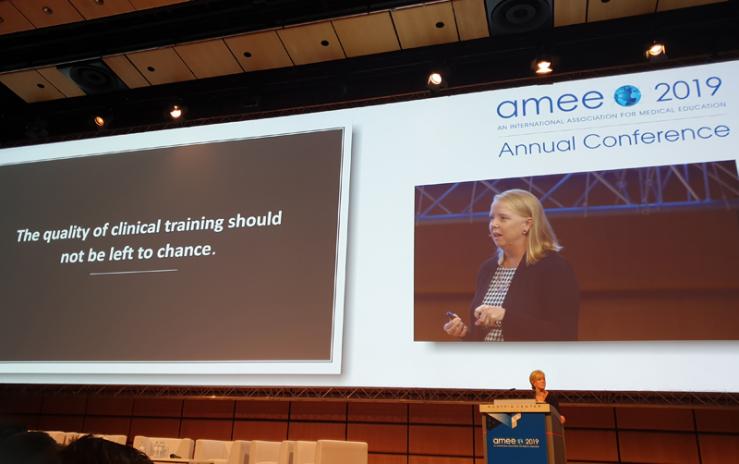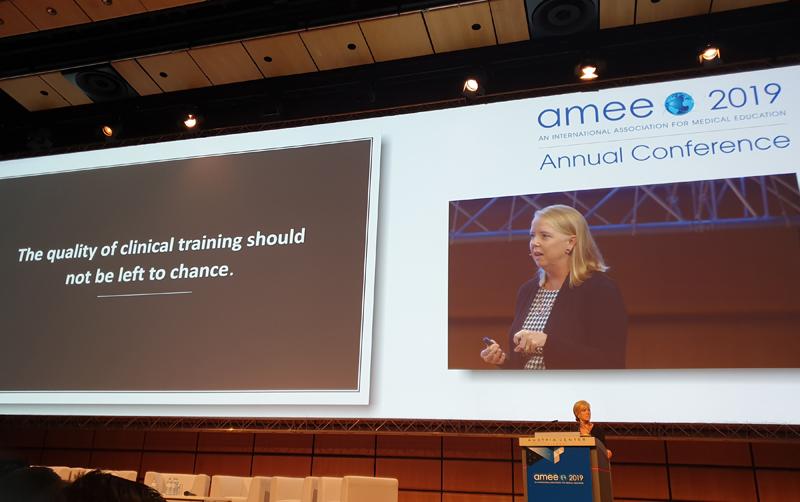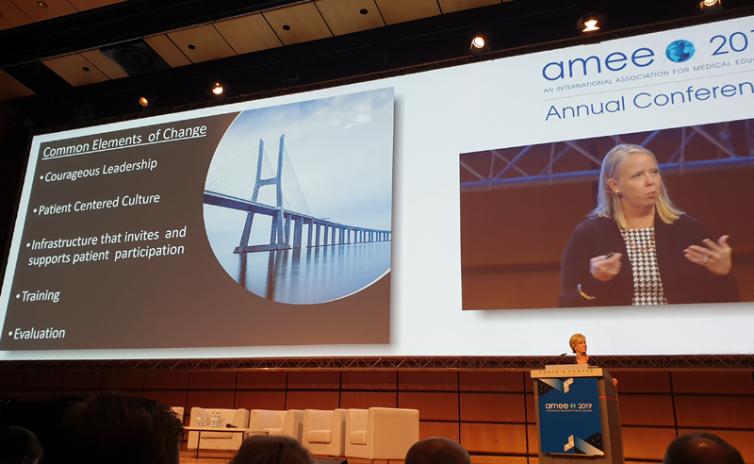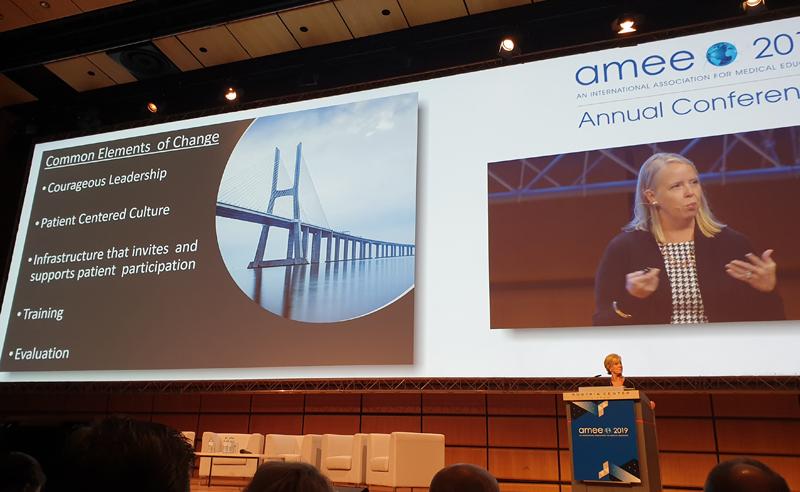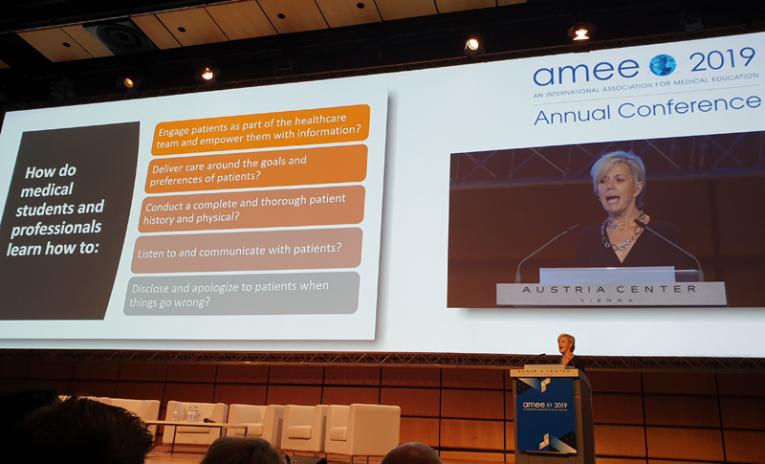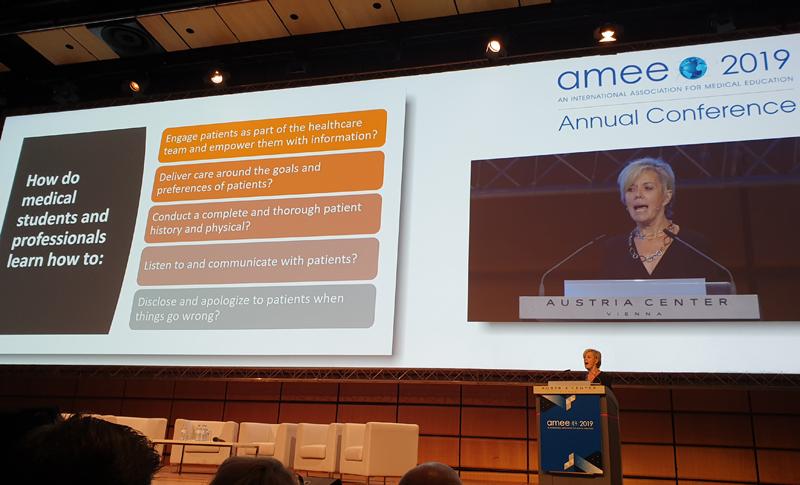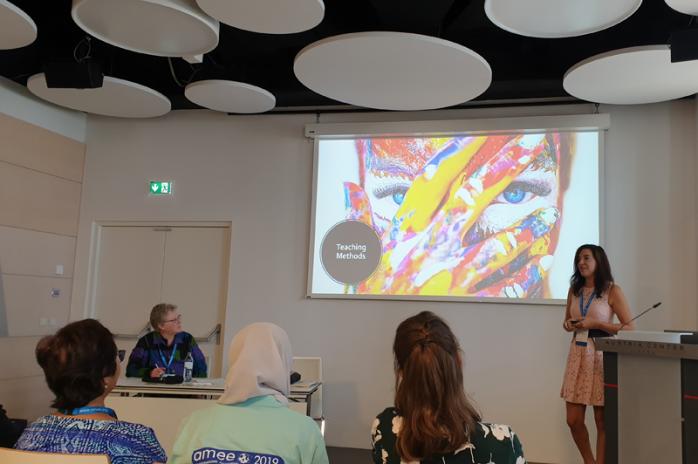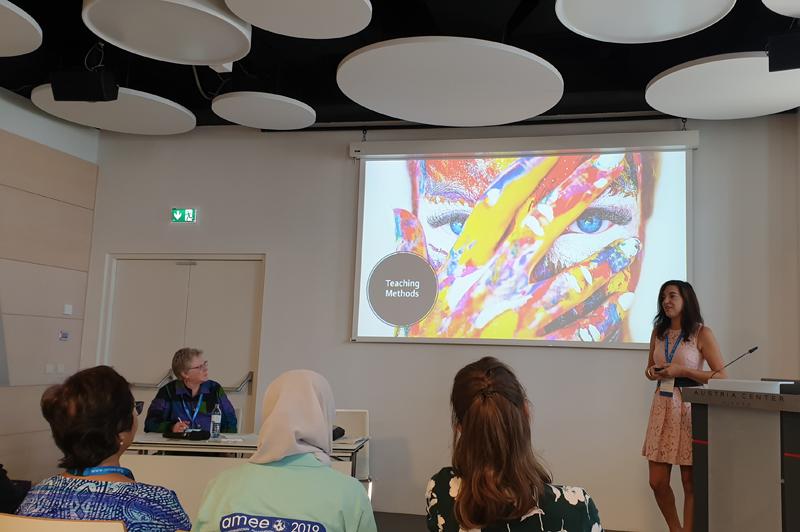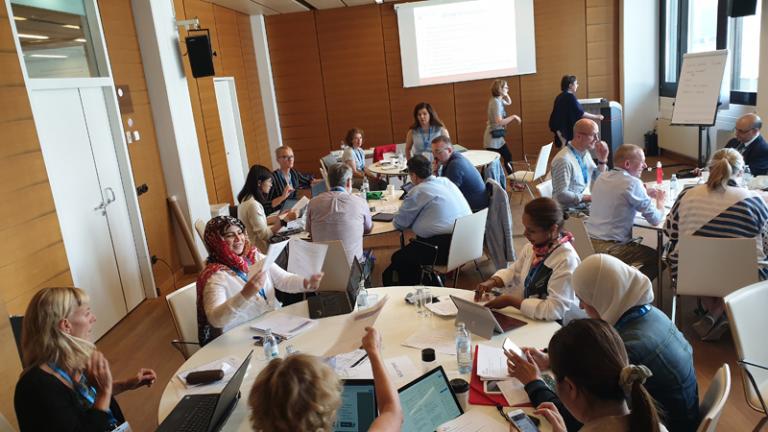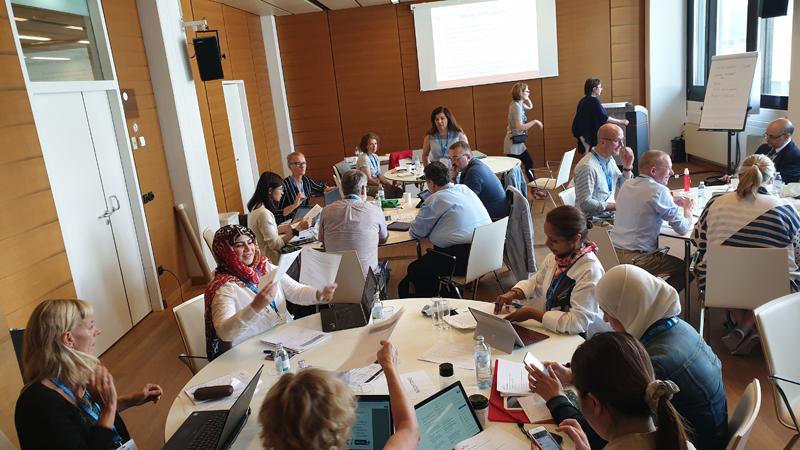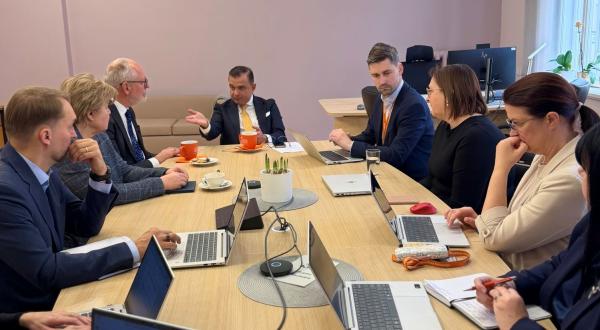Positive feedback on the School of Junior Academics resounds from Canada to Australia
![LV_ID_EU_logo_ansamblis_ESF_eng[1].jpg](/sites/default/files/imce/logos/LV_ID_EU_logo_ansamblis_ESF_eng%5B1%5D.jpg)
From 24 to 28 August, the conference of the Association for Medical Education in Europe (AMEE) was held in Vienna, Austria. At the conference, the School of Junior Academics (SJA) of Rīga Stradiņš University (RSU) attracted international interest and recognition.
The Association for Medical Education in Europe is among the most influential global organisations with representatives in 90 countries on 5 continents, among them academic staff, researchers, university management representatives, developers and implementers of study and professional upgrading programmes, professionals from various science disciplines, students and practicioners, who represent medicine and the healthcare sector. The Centre for Educational Growth encouraged RSU to become an AMEE member institution in order to expand its international cooperation network and enrich the development of medical education in the world.
AMEE promotes excellence in education in medicine and healthcare professions across all levels of higher education, including continuing education. In cooperation with various organisations, the association strengthens the capacity of teachers and institutions in developing new study programmes, organising and managing teaching and learning process, implementing internal quality assessment on a regular basis, responding to scientific advances in medicine and changes in healthcare delivery and patient demands, as well as new educational paradigms.
This year the annual AMEE conference gathered more than 3000 participants. The Director of the RSU Centre for Educational Growth, Assist. Prof. Nora Jansone-Ratinika, represented RSU at the event. She reported on the process of establishing SJA, its operational principles and what benefits teachers get from engaging in SJA activities. Attendees from tens of countries agreed that investing in junior academics testifies to the institution’s far-sightedness, as teacher competence is a long-term driving force for the future. In addition, representatives from Europe, Asia and America shared their experience on the practical implementation of continuing education activities for teachers and healthcare practitioners. Regardless of differences in health care, sociocultural systems and other differences, it was nevertheless possible to identify common benefits and shared challenges. One common trend is taking an interdisciplinary approach. This involves respecting disciplines’ unique characteristics, and not placing limitations on representatives of these disciplines, but rather including them as equal participants in joint study activities. These activities in turn offer them the opportunity to broaden their horizons and encourages them to focus on student-oriented and patient-oriented teamwork.
Overall conference attendees had the opportunity:
- to develop inter-institutional cooperation;
- to have an extended overview on the trends of the development of medical education at an international level and match them with RSU landmarks with regard to simulation-based education, competency-based learning, improvement of the study content and process, interdisciplinary cooperation and patient involvement;
- to view quality monitoring and improvement from various perspectives.
In the last week of August, prior to the start of the new academic year, SJA gathered 20 participants from 12 academic structural units to discuss the process of students' adaptation to university life. It was concluded that students should be able to adapt to university life and accept new values, rules and models of behaviour in three fields: physical, social and informative. A teacher can provide contribute significantly and support this process by demonstrating initiative and assisting students in solving purely practical matters and by observing students’ ability to overcome various challenges. When necessary, the teacher can also demonstrate, through having information conversations, that RSU is a safe place and that teachers care about their students. Adapting to university life is among the most essential tasks during a student’s first year of studies. Besides, colleagues also stressed that students' ability to adapt to university life and the teacher's ability to support them have long-term effects. This interaction might be also seen as a chain reaction. If a teacher takes care of how well a student adapts, then freshmen are less stressed and are able to develop a stable sense of belonging to their university that, in turn, fosters student engagement and motivation during the study process, facilitates teachers’ work and brings satisfaction that eventually results in a better academic performance. Besides, collegial relations strengthens students’ independence, determination and develops leadership qualities that are seen as the main professional attribute for both students and teachers, as stated by AMEE President Prof. Trudie Roberts at the AMEE symposium.
During this academic semester, until mid-December 2019, various teaching activities in the amount of 35 academic hours will be implemented at SJA. The next participant group will commence their work at the school already in April 2020.
‘This competence building resource is remarkable in the fact the School of Junior Academics is based on in-depth theoretical and practical research and at the same time it is iterative. The organisers and teachers address current needs in a sensitive and operative manner. The content and processes are fresh, up-to-date, and the environment is favourable to exploring, experimenting, exchanging ideas and creating. This type of drive for a career in teaching inspires one to learn and teach in order to contribute to the development of the discipline and build a better future.’
Peer testimonial of the RSU School of Junior Academics
